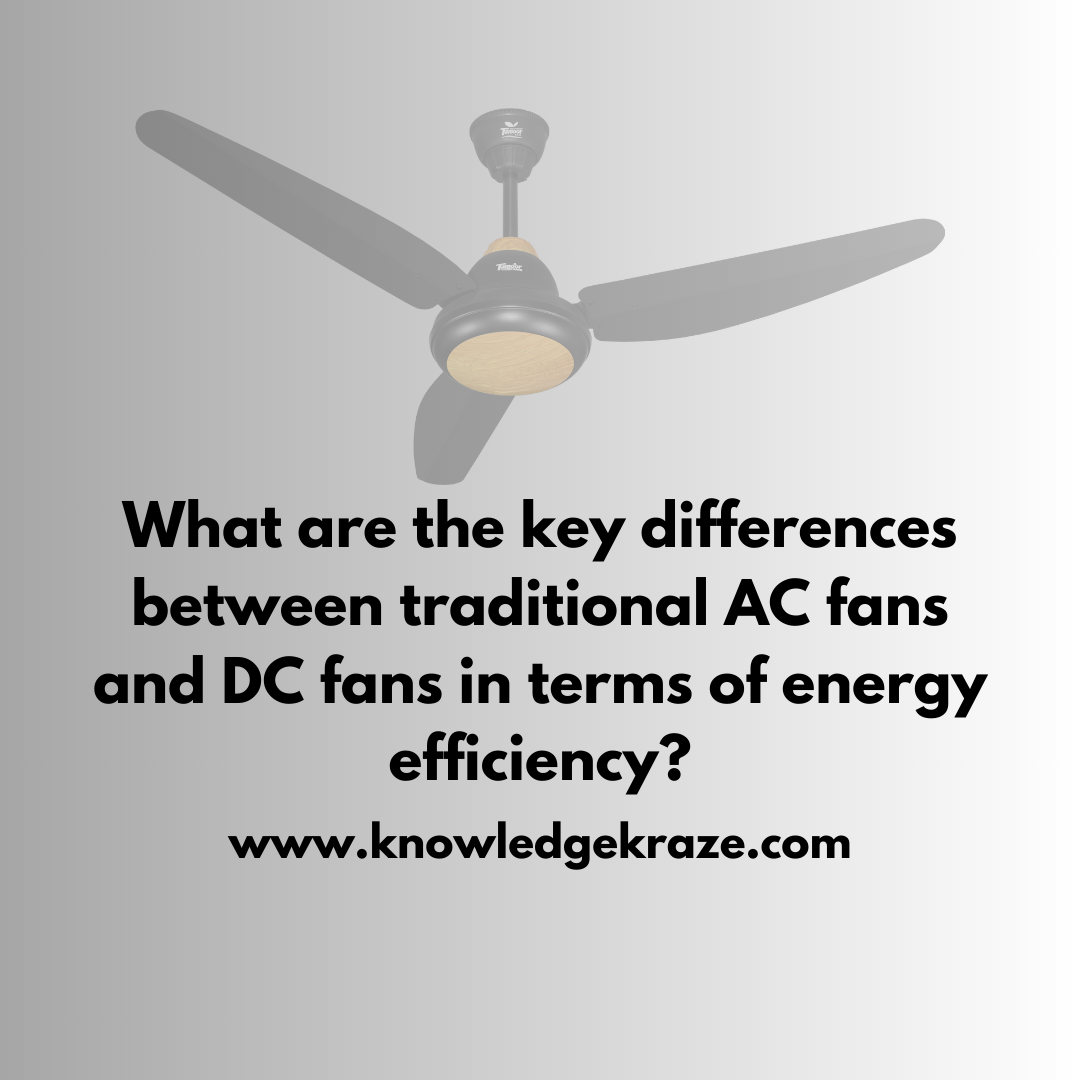AC Fans vs DC Fans: Understanding the Energy Efficiency Difference
In today’s world, saving energy is important. When it comes to keeping cool, fans are a popular choice. But not all fans are the same. There are two main types: AC fans and DC fans. This article will explain the key differences between these fans, focusing on how they use energy.
What are AC and DC Fans?
Before we dive into the differences, let’s understand what AC and DC mean:
- AC stands for Alternating Current
- DC stands for Direct Current
AC fans use the standard electricity that comes from your wall outlets. DC fans use a different type of electricity that usually comes from batteries or is converted from AC.
Energy Use: The Big Difference
The most important difference between AC and DC fans is how much energy they use. This affects both your electricity bill and the environment.
DC Fans: The Energy-Saving Champions
DC fans are known for using less energy. Here’s why:
- More Efficient Motors: DC fans have motors that waste less energy as heat.
- Better Speed Control: They can change speeds more smoothly, using just the right amount of power.
- Lower Power Consumption: DC fans typically use 30-50% less energy than AC fans.
AC Fans: The Traditional Choice
AC fans have been around longer and are more common. While they use more energy, they have their own benefits:
- Simpler Design: AC fans have fewer parts, which can make them more reliable.
- Lower Initial Cost: They are usually cheaper to buy than DC fans.
- No Need for Conversion: They work directly with the power from your wall outlet.
Performance and Features
Energy use isn’t the only difference. Let’s look at how AC and DC fans perform:
DC Fans: Smooth and Quiet
- Quieter Operation: DC fans usually make less noise.
- More Speed Options: They often have more speed settings.
- Smoother Start: DC fans start more gently, without a sudden jerk.
AC Fans: Powerful and Simple
- Higher Air Flow: AC fans can often move more air.
- Simpler Repairs: They are easier to fix if something goes wrong.
- Widely Available: You can find AC fans in more places.
Cost Considerations
When thinking about which fan to buy, it’s important to consider both the initial cost and long-term costs:
Short-Term vs Long-Term Costs
- Initial Purchase: AC fans are usually cheaper to buy.
- Energy Bills: DC fans cost less to run over time.
- Lifespan: DC fans often last longer, which can save money in the long run.
Environmental Impact
Using less energy isn’t just good for your wallet; it’s also better for the planet:
- Lower Carbon Footprint: DC fans use less electricity, which means less pollution from power plants.
- Fewer Resources: Because they last longer, DC fans might mean fewer fans are made and thrown away.
Making the Right Choice
Choosing between an AC and DC fan depends on your needs:
- For Energy Savings: Choose a DC fan if you want to save on electricity bills.
- For Lower Upfront Cost: An AC fan might be better if you’re on a tight budget.
- For Quiet Operation: DC fans are usually the quieter choice.
- For Simplicity: AC fans are simpler and more familiar.
The Future of Fan Technology
As technology improves, we’re seeing changes in both AC and DC fans:
- Smarter Features: Both types of fans are getting “smart” features like remote control and scheduling.
- Improved AC Efficiency: Newer AC fans are becoming more energy-efficient, though still not as much as DC fans.
- Better DC Affordability: As more DC fans are made, their prices are coming down.
Conclusion
Both AC and DC fans have their place in keeping us cool. DC fans stand out for their energy efficiency, using less power and potentially saving money over time. They’re also quieter and often have more features. However, AC fans are still popular because they’re cheaper to buy and simpler to use and repair.
When choosing a fan, think about what’s most important to you. If saving energy and reducing your bills is your top priority, a DC fan might be the best choice. If you want a simple, affordable fan that gets the job done, an AC fan could be right for you.
Remember, the most energy-efficient fan is the one that’s turned off when you don’t need it. No matter which type you choose, using your fan wisely is the best way to save energy and stay cool.
